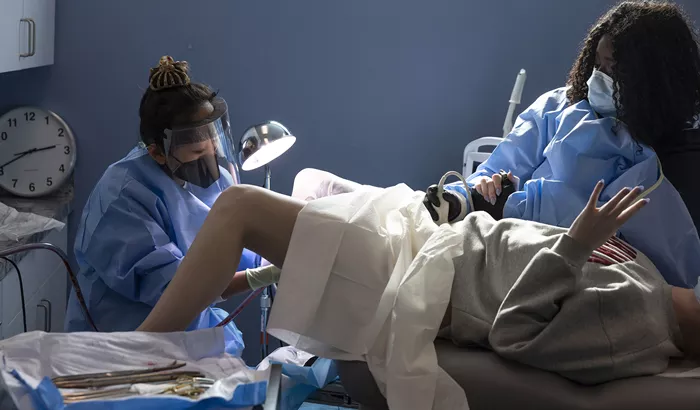A federal judge has ruled that Alabama cannot prosecute people or organizations that help residents travel out of state to get an abortion. The decision has allowed reproductive rights groups to resume work after more than two years of legal uncertainty.
Yellowhammer Fund Resumes Helping Patients Immediately
The ruling was a major win for the Yellowhammer Fund, a nonprofit that helps patients access abortion care. The group resumed helping patients just minutes after the judge’s decision.
“The decision came at about 5:30. I think we funded an abortion at 5:45,” said Jenice Fountain, Yellowhammer Fund’s executive director. “That’s how urgent the need is.”
Alabama’s abortion ban, one of the strictest in the country, took effect in June 2022 after the Supreme Court overturned Roe v. Wade. The law has no exceptions for rape or incest.
Attorney General’s Threats Had Chilling Effect
Since 2022, Yellowhammer Fund and similar groups were afraid to assist patients due to vague language in the law and public threats from Alabama Attorney General Steve Marshall. In a radio interview, Marshall suggested that helping someone get an abortion in another state could be a felony.
Marshall’s comments caused many groups to stop providing any support or even information about out-of-state abortion options. Yellowhammer and others filed a lawsuit against Marshall in July 2023.
Judge Cites Free Speech and Right to Travel
U.S. District Judge Myron Thompson sided with the reproductive rights groups. He ruled that prosecuting them would violate free speech and the constitutional right to travel.
Thompson warned against Alabama trying to enforce its laws beyond its borders. He gave an example: if that were allowed, the state could also try to punish residents for gambling in Las Vegas, even though gambling is illegal in Alabama.
Clinics Can Now Provide Full Information to Patients
Another group involved in the case, WAWC Healthcare (formerly West Alabama Women’s Center), can now openly counsel patients on all legal options, including where to get an abortion in another state.
Before the ruling, staff at WAWC weren’t even allowed to suggest that a patient could travel out of state. “There is nothing harder than looking into somebody’s face when they are in crisis and saying, ‘I’m sorry, I just can’t help you anymore,’” said executive director Robin Marty.
With the court’s protection, WAWC is again able to offer what they call “all-options counseling,” providing referrals and support for out-of-state care.
Legal Expert Predicts Possible Appeal
The state attorney general’s office has not said whether it will appeal the ruling. Legal expert Mary Ziegler, a professor at UC Davis, said an appeal is likely but not certain.
If an appeal is filed, the case would go to the 11th U.S. Circuit Court of Appeals, a conservative court. It could eventually reach the U.S. Supreme Court, which has already signaled a continued interest in abortion-related cases.
What This Means Going Forward
This ruling may influence similar legal battles in other states. It also shows how courts are starting to address the unclear legal territory left behind after Roe v. Wade was overturned.
“This fight isn’t over,” said Ziegler. “If anything, the courts are going to be more involved than ever in abortion and reproductive rights cases.”


